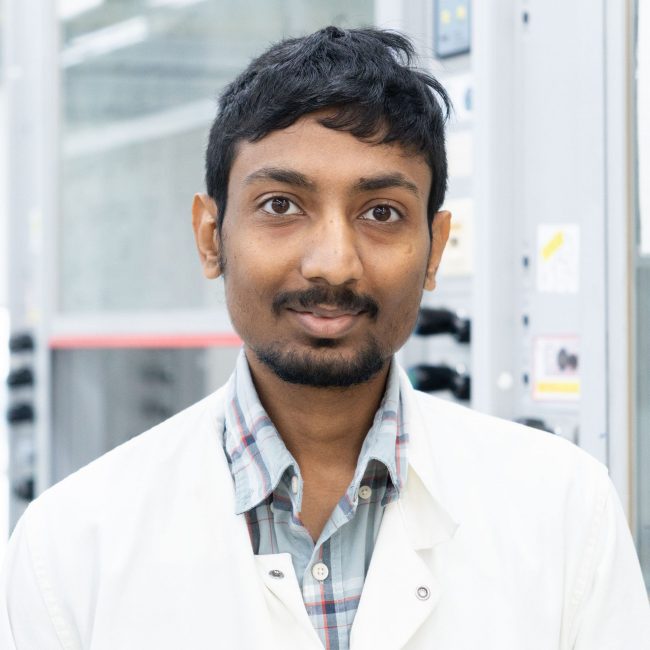Debasis Pal obtained his M.Sc. in chemistry from Indian Institute of Technology Kanpur (India). After completing the master’s degree, he moved to Queen’s University (Canada) to pursue PhD in organic and organometallic chemistry, under the supervision of Prof. P Andrew Evans. He completed the doctoral studies in 2023; his research was focused on the development of transition metal catalyzed asymmetric allylic substitution reactions with unstabilized nucleophiles/organometallic reagents. In 2024, he joined Prof. Marcos G. Suero’s group as a post-doctoral researcher to work on the rhodium-catalyzed carbyne transfer chemistry. Currently he is working in the same group as a MSCA fellow.
Dr. Debasis Pal
Prof. Marcos G. Suero
Rhodium-catalyzed carbyne transfer strategy to streamline synthesis of housane

From 15/04/2025 to
14/04/2027
HOUSANE
Aliphatic sp3-rich ring systems such as cyclopropanes and cyclobutanes are commonly observed motif in drug molecules. This is due to the fact that they can positively influence metabolic stability, conformation, pKa, entropy, membrane permeability or pharmacokinetics in drug leads.
However, the molecule consists of a cyclopropane fused to cyclobutane, traditionally known as ‘housane’ is significantly underexplored and yet to appear in drug molecules. This can largely be attributed to the lack of general synthetic methods for the preparation of this motif. Current protocols for the synthesis of housane, require multistep manipulations or pre-functionalized substrates, which means low efficiency and sustainability. Housane aims to develop an innovative technology to rapidly construct housanes and housane derivative of drug molecules from feedstock and fine alkenes based on a Rhcatalyzed carbyne transfer platform.
A key strength of this conceptually new and multidisciplinary proposal is the introduction of a secondment phase in Janssen (Toledo, Spain) to explore real-life applications. The ambitious action merges perfectly with the expertise of the host in novel C-H and C– C bond functionalization strategies based on the catalytic generation of carbyne equivalents with the strong background of the applicant in transition metal-catalyzed asymmetric allylic substitution chemistry, thus enhancing two-way transfer of knowledge between the ER and the host group.
This project will expose the fellow to a wide range of cutting-edge chemistry including medicinal chemistry in an interdisciplinary and international environment (ICIQ, Janssen) and enable the fellow to become a leader for the next generation in the field of organic synthesis, homogeneous catalysis and medicinal chemistry.

Funded by the European Union (101205974-Housane).
Research output
Symposiums
Outreach activities
News/Blog